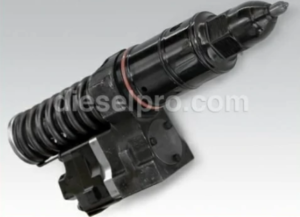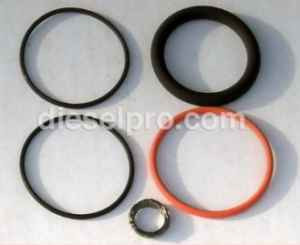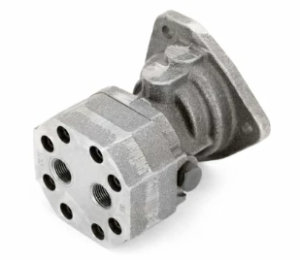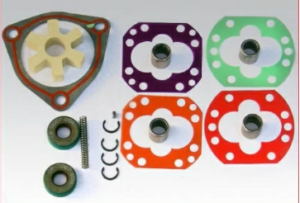Diesel and Natural Gas Fuel Systems for Detroit Diesel Series 60 Engines (11.1L, 12.7L, 14L)
The fuel system in Detroit Diesel Series 60 engines is a sophisticated arrangement designed to deliver precise quantities of fuel under high pressure to the combustion chambers. This system ensures efficient combustion, reduced emissions, and optimal engine performance. The system supports both diesel and natural gas configurations, catering to various engine applications.
Natural gas systems, used in specific models like the Series 60G, prioritize safety with venting mechanisms and filters tailored to handle gas characteristics.
Parts Catalog for 11.1L Detroit Diesel 60 Series Marine Engine
Parts Catalog for 12.7L Detroit Diesel 60 Series Marine Engine
Parts Catalog for 14L Detroit Diesel 60 Series Marine Engine
System Layouts for Detroit Diesel Series 60 Engines (11.1L, 12.7L, 14L)
The system layout includes key components such as:
- Primary and Secondary Fuel Filters
- Fuel Pump
- Electronic Control Module (ECM) Cooling Plate
- Fuel Injectors
- Return Line for Surplus Fuel
Fuel is drawn from the tank, passed through filters, and pressurized by the pump before being distributed to the injectors through integral passages in the cylinder head. Excess fuel is routed back to the tank via a return line, ensuring consistent pressure throughout the system.
High-Pressure and Low-Pressure Configurations for Detroit Diesel Series 60 Engines (11.1L, 12.7L, 14L)
The fuel system operates under two pressure zones:
- High-Pressure Zone: Includes the injectors and the cylinder head manifold. The injectors deliver fuel at the precise pressure required for efficient atomization and combustion.
- Low-Pressure Zone: Includes the fuel tank, pump, and primary filters. It ensures an adequate supply of fuel to the high-pressure system.
Natural gas configurations incorporate regulators to manage pressure changes and safety mechanisms to prevent leaks.
Fuel Injectors for Detroit Diesel Series 60 Engines (11.1L, 12.7L, 14L)

Types of Fuel Injectors
- Electronic Unit Injectors (EUI):
- Used in both N2 and N3 configurations.
- The N3 model is more compact, efficient, and resistant to leakage.
- N2/N3 Models:
- Equipped with solenoid valves for precise control of fuel delivery.
- The N3 injectors feature an advanced design with improved strength and reduced weight.
Installation, Removal, and Testing

- Installation:
- Clean the injector bore thoroughly before installation.
- Apply a thin coat of fuel to the injector O-rings and install them into the nut ring grooves.
- Align the injector in the bore and secure it with a clamp and bolt, ensuring proper torque.
- Removal:
- Disconnect electrical connections and release the clamp.
- Use an injector removal tool to lift the injector from the bore.
- Testing:
- Use a diagnostic tool to verify injector performance, checking for leaks or improper operation.
- Use a diagnostic tool to verify injector performance, checking for leaks or improper operation.
Fuel Pumps and Filters for Detroit Diesel Series 60 Engines (11.1L, 12.7L, 14L)

Maintenance and Replacement Procedures
- Primary and Secondary Filters:
- Replace every 24,000 km (15,000 miles) or during oil changes.
- Inspect for clogging and clean if necessary.
- Fuel Pump:
- Inspect for wear or damage.
- Ensure proper pressure output by testing during routine maintenance.
Fuel Line Safety Practices for Detroit Diesel Series 60 Engines (11.1L, 12.7L, 14L)

Safety is paramount when working with fuel systems. Key practices include:
- Fire Prevention:
- Work in well-ventilated areas.
- Eliminate ignition sources.
- Use protective clothing and equipment.
- Leak Detection:
- Inspect lines for wear or damage.
- Use soapy water to check for gas leaks.
- Proper Handling:
- Relieve pressure from fuel lines before servicing.
- Dispose of contaminated fuel in accordance with regulations.
By adhering to these procedures and utilizing premium aftermarket parts, the fuel system of Detroit Diesel Series 60 engines can be maintained for reliable and efficient operation.
Parts Catalog for 11.1L Detroit Diesel 60 Series Marine Engine
Parts Catalog for 12.7L Detroit Diesel 60 Series Marine Engine
Parts Catalog for 14L Detroit Diesel 60 Series Marine Engine



 Free US Calls: 1-888-433-4735
Free US Calls: 1-888-433-4735 International: 305-545-5588
International: 305-545-5588